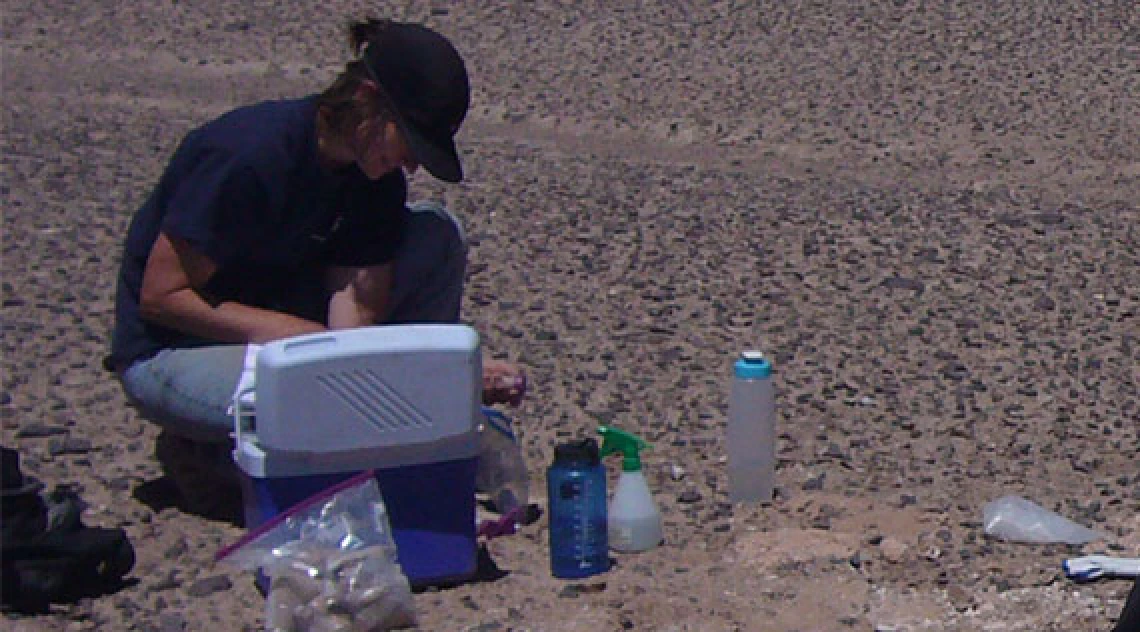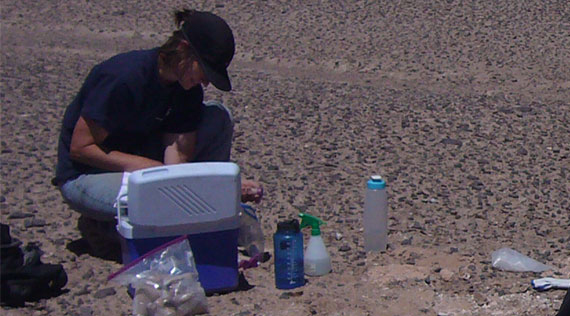Microbial master: Julia Neilson interviewed by Atlantic, Science as expert in desert microbial communities.

 Julia Neilson, UA SRP Investigator working with Center Director Raina Maier, was interviewed by both the Atlantic and Science as the technical expert on the microbial communities of the Atacama Desert in Chile.
Julia Neilson, UA SRP Investigator working with Center Director Raina Maier, was interviewed by both the Atlantic and Science as the technical expert on the microbial communities of the Atacama Desert in Chile.
“It was fun being interviewed, being the technical expert for this field,” Neilson said. “The Maier research group has a reputation of being one of the groups that have published in the Atacama –we’ve done research in the Atacama Desert in Chile since about 2002.”
Neilson’s work in the Atacama focused on how microbial diversity is affected by a precipitation gradient and how stressors to the soil microbiome affect the microbes’ ability to function.
“This knowledge can inform land management practices focused on the reclamation of lands disturbed by anthropogenic activity,” Neilson said. “Once you disturb the desert, because it’s such a fragile ecosystem, it takes a long time to recover. And I think that’s one of the unique things about our Superfund project relative to the ones in California and the Northeast.”
The article Neilson was interviewed about was written by Dirk Schulze-Makuch, an astrobiologist at the Technical University of Berlin, and focused on how the Atacama responded after a rare rainfall event.
“What was cool was that they used a bunch of different techniques to try to figure out if the populations were active and if they were actually dividing,” Neilson said. “They used a whole genome sequencing technique that I hadn’t seen before that I thought was really innovative, where they could actually track replication sites.”

They also used a technique to separate out intercellular ATP from extracellular, as well as to sequence intercellular DNA and extracellular. Neilson called their techniques “creative and new.”
Neilson said the fact that she was tapped as a technical expert simply goes to show how the University of Arizona Superfund Research Program’s work can apply in both a broad and specific sense.
“The PI’s in our Superfund Research Program are doing research that has grabbed the attention of a national audience,” Neilson said.

